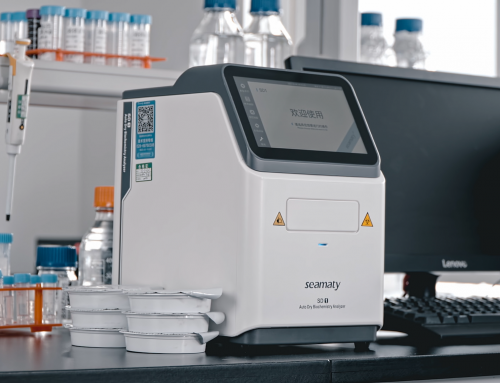Dry Chemistry Analyzer
A dry chemistry analyzer is a machine used to analyze the chemical composition of a sample. It utilizes thermodynamic and diffusion principles to measure the concentration of various molecules in a sample. This article will provide an overview of how dry chemistry analyzers work and the common applications they are used for.
Dry Chemistry Analyzers
1.
What is a dry chemistry analyzer?
A dry chemistry analyzer is a device that analyzes a sample without the need for liquid reagents. Instead, it relies on a pre-determined amount of reagent packet that is mixed with the sample prior to analysis. These devices are common in clinical laboratories and are used to assess several key aspects of a patient’s health, including blood glucose, cholesterol, and liver function. Although dry chemistry analyzers are generally accurate, erroneous results can occasionally occur due to operator error or poor sample quality. Therefore, proper training of laboratory personnel as well as regular calibration is critical to ensure accuracy.

2.
Principles of Dry Chemistry Analyzers
A dry chemistry analyzer works by converting a sample into a dry powder form, which is then placed into a reaction chamber and mixed with a reagent solution. After a reaction period, the analyzer measures the results produced by the reaction. Various techniques, such as spectroscopy, mass spectrometry and nucleic acid hybridization, are used to accurately measure chemical concentrations. This versatility allows dry chemistry analyzers to perform a wide range of analytical tasks, from evaluating the purity of compounds to identifying unknown substances.
3.
Typical Users of Dry Chemistry Analyzers
Although the users of dry chemistry analyzers vary depending on the type and model of equipment, they are typically used by scientists and researchers in the fields of chemistry, biology, and pharmacology.
4.
What are the advantages of dry chemistry analyzers over other laboratory equipment?
Dry chemistry analyzers offer several advantages over other laboratory equipment, including the ability to handle a wide range of analytical tasks, a high degree of accuracy, and low maintenance requirements. In addition, the cost of a dry chemistry analyzer is much lower than many other types of laboratory equipment.
One of the main advantages of dry chemistry analyzers is their ability to handle a wide range of analytical tasks. This versatility stems from the fact that dry chemistry analyzers use a number of different methods to analyze samples, including titrimetric, colorimetric, and potentiometric methods. In addition, dry chemistry analyzers are capable of handling both solid and liquid samples.
Another advantage of dry chemistry analyzers is their high degree of accuracy. This accuracy is due in part to the fact that dry chemistry analyzers use multiple methods to analyze samples, which helps reduce errors. In addition, dry chemistry analyzers are specifically designed to minimize contamination.
Finally, dry chemistry analyzers require little maintenance. This is because dry chemistry analyzers use very few moving parts, which reduces the need for regular maintenance and repairs. In addition, dry chemistry analyzers are designed to be used in a variety of environments, including clean and dirty laboratory environments.

5.
Where can I find more information about dry chemistry analyzers?
For more information on dry chemistry analyzers, consider browsing market research websites, business journals, and related publications. Connecting with companies that specialize in such equipment can provide detailed market insights. In addition, attending industry-specific trade shows and conferences can provide valuable knowledge about dry chemistry analyzers.
6.
Disadvantages of Dry Chemistry Analyzers
Although dry chemistry analyzers offer many benefits, they are not without their drawbacks. Operator error can lead to inaccurate results and sample contamination. Regular maintenance and calibration are essential to their proper functioning, as neglecting these aspects can lead to unreliable or dangerous results. Clinical laboratories should carefully evaluate these risks and benefits before purchasing a dry chemistry analyzer.
Conclusion
Dry chemistry analyzers play an integral role in laboratory testing, providing fast and accurate results. Their ability to handle a wide range of analytical tasks, coupled with minimal maintenance requirements, makes them the preferred choice in a variety of fields.





Leave A Comment